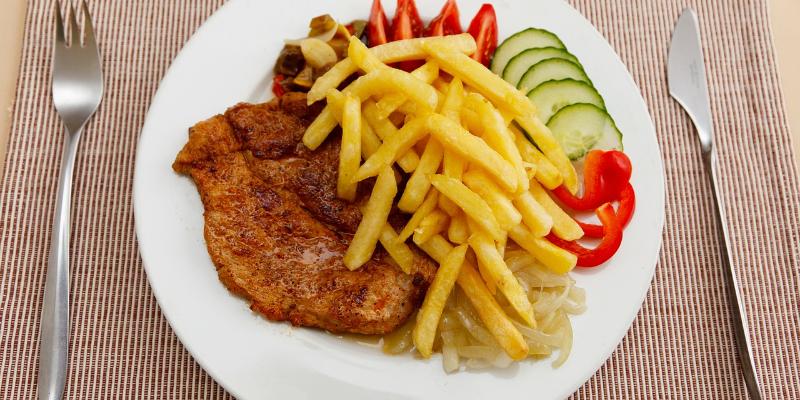Marek Lichota, from the “Appetite for life" Patients Association, lost 30 kg after a month in hospital and four procedures. In his case, medical nutrition therapy was necessary.
Lichota, who suffers from Crohn’s disease (an inflammatory bowel condition), told journalists that he was extremely emaciated, and his wounds would not heal for a long time. Although he is 186 cm high, he weighed 50 kg. Parenteral nutrition helped him and he started applying it himself at home when he left the hospital.
Dangerous malnutrition
Sick people should not remain malnourished for too long, as it makes their condition even worse. Malnutrition, even in the case of an otherwise healthy person, can be tolerated for no more than seven days. Later, if there is no other possibility, you need to introduce specialised medical nutrition therapy.
According to Dr. Stanisław Klęka from the Polish Society for Parenteral, Enteral Nutrition and Metabolism (POLSPEN), in Poland, from 30 to 50% of patients admitted to hospital are malnourished. The level of malnutrition of another 30% gets worse during hospitalisation. Not only do patients suffer, but the health care budget is also burdened, as the costs of treatment of a malnourished patient are much higher.
“Excessive weight loss by a patient can decrease his or her immunity, worsen lung ventilation (as a result of respiratory muscle atrophy), slow down the healing of wounds, and decrease intestinal peristalsis, which disrupts the absorption of food even more" emphasised Dr. Piotr Szybiński from POLSPEN.
When is medical nutrition therapy necessary?
To improve patient condition oral nutritional supplements are used. Only when there is no desired effect is enteral nutrition (through a probe or tube) or parenteral nutrition (through central venous catheters or peripheral cannulae) introduced.
Patients who lost 10-15% of their weight during 3-6 months, or those with a BMI below 23.5, are eligible for one of these types of nutrition. The treatment is absolutely necessary for patients with a BMI below 17.
The most frequently used is enteral nutrition, which the doctor must properly fit to the individual patient. It takes place in the patient’s home, where prepared mixtures are delivered. Doctors and nurses visit the patient once in a while and check if the treatment is conducted properly.
Parenteral nutrition can last for many years
Parenteral nutrition is used in Poland by almost 800 adults and approximately 200 children. Many of them suffer from so-called short-bowel syndrome, which does not allow the proper absorption of food.
Patients are provided with all the necessary nutrients, such as proteins, glucose, lipids, vitamins, minerals and electrolytes, in the form of a fluid which is administered directly into a vein, and usually into a large blood vessel. Food is administered through a permanently-introduced catheter, to which bags with previously-prepared liquid containing nutritional supplement are connected. The patient must only learn to prepare the mixtures.
In Poland, patients who have the appropriate training can on their own prepare food mixtures specially adapted for them by a doctor. If necessary, parenteral nutrition can last for many years.









Comments (0)